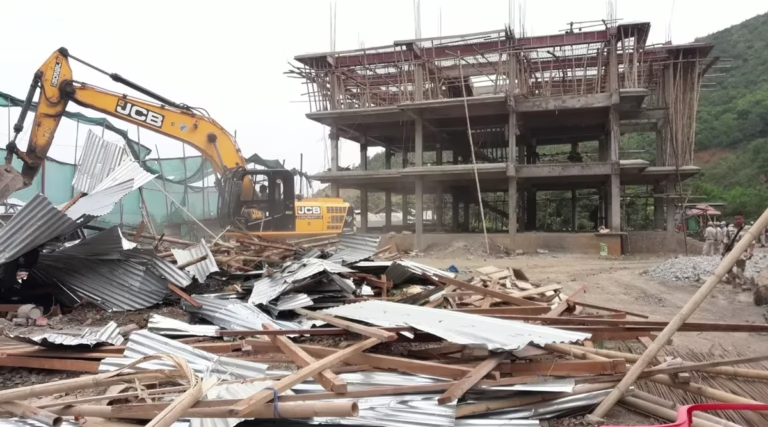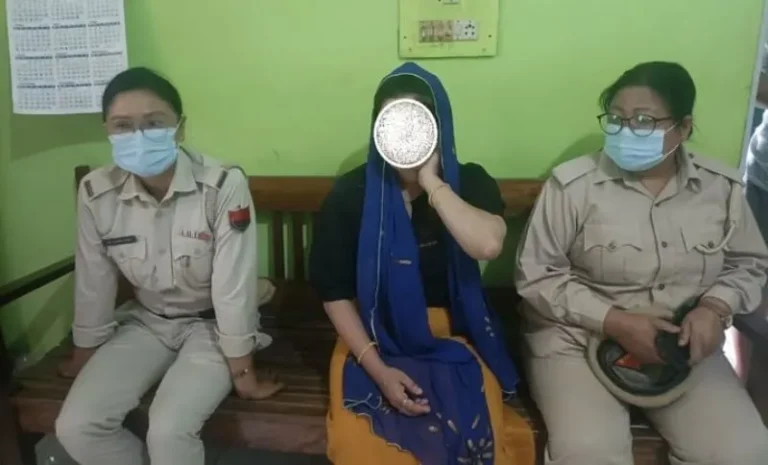Manipur Physics Paper Leak Ahead of HSSLC Examinations 2025: What It Means for Students, Educators, and the Future of Exam Integrity
Introduction
Have you ever wondered how a single leaked exam paper can send shockwaves through an entire educational system? Recently in Manipur, such an incident occurred when a physics paper meant for the HSSLC examinations 2025 was leaked on social media. If you’re a student, a teacher, or even a concerned parent, you might be asking, “How did this happen?” and “What does it mean for our future?” In this comprehensive article, we’re going to unpack every detail surrounding the leak—from the incident itself to its ripple effects on the education system, and what steps might be taken to prevent such breaches in the future.
The Unfolding of the Leak Incident
It all began when a physics paper, meticulously prepared for the upcoming HSSLC examinations, surfaced on social media channels well before the scheduled exam date. This wasn’t just any minor slip-up; it was a significant breach of trust that has left many stakeholders in a state of disbelief and concern. Imagine preparing for one of the most important tests of your academic career, only to find out that the exam questions might already be circulating online. It’s like setting out to run a race and discovering that someone has already mapped out your entire course.
How Did the Leak Happen?
While the exact details of the leak are still under investigation, early reports suggest that the breach might have occurred due to a combination of technical vulnerabilities and human error. In today’s digital age, even the most secure systems can sometimes fall prey to cyberattacks, insider threats, or inadvertent mistakes. Think of it like a fortress with a hidden crack—no matter how sturdy the walls, that one weak spot can let trouble in.
Immediate Reactions and Social Media Frenzy
As soon as the paper made its way online, social media exploded with reactions. Students, teachers, and education professionals took to various platforms to express their shock, disappointment, and even anger. Some users speculated about the possible involvement of insiders, while others debated whether this leak was an isolated incident or indicative of a broader systemic issue. The incident quickly became a trending topic, with hashtags related to exam security and academic integrity dominating discussions.
The Impact on Students and Educators
The effects of this leak are far-reaching and touch nearly every aspect of the educational experience in Manipur. Let’s dive into how this incident has influenced various stakeholders.
For Students: A Double-Edged Sword
For students, exam leaks can create a confusing and stressful environment. On one hand, there’s the temptation of having access to exam questions ahead of time, which might seem like an advantage. However, relying on leaked material undermines genuine learning and creates an unfair playing field. Here are some of the key challenges students face:
- Erosion of Trust: Students may feel betrayed by the system that is supposed to safeguard their future. When exam papers are leaked, it raises questions about the fairness of the assessment process.
- Academic Integrity at Risk: Using leaked questions can compromise the integrity of one’s academic record. It’s akin to taking shortcuts in a marathon—you might finish the race faster, but you’ve lost the honor of genuine achievement.
- Emotional Stress: Discovering that the exam content is compromised can lead to anxiety and stress, as students are left wondering whether their hard work will truly be reflected in their final scores.
For Educators and School Administrators
Teachers and school administrators are caught in a difficult position when exam leaks occur. Their primary role is to ensure that the examination process is fair and transparent, but a leak can derail months of careful planning. Educators face several challenges:
- Reputation and Credibility: A leaked exam paper can tarnish the reputation of the educational institution and the exam board. Trust, once broken, is hard to rebuild.
- Revising Curriculum and Assessments: In the wake of a leak, authorities might need to overhaul exam questions or even reschedule tests, disrupting the academic calendar and causing logistical nightmares.
- Increased Workload: Teachers are forced to spend additional time addressing student concerns, recalibrating their teaching methods, and ensuring that future assessments remain uncompromised.
The Role of Technology and Security in Exam Management
Exam paper leaks are not new, but in our increasingly digital world, the stakes are higher than ever. Let’s explore how technology plays a crucial role in exam security—and what might have gone wrong in this instance.
Digital Vulnerabilities and Cybersecurity Threats
Modern exam management systems rely heavily on digital platforms to create, store, and distribute test papers. While this enhances efficiency, it also opens up potential vulnerabilities:
- Cyberattacks: Hackers are always on the lookout for weak spots in digital systems. A successful cyberattack can lead to unauthorized access and leaks.
- Insider Threats: Sometimes, the breach might come from within. A disgruntled employee or someone with privileged access might intentionally or unintentionally leak sensitive information.
- Inadequate Security Measures: Even with advanced systems in place, a lack of regular security audits or outdated software can leave exam papers vulnerable to leaks.
Imagine your digital data as a treasure trove in a high-tech vault. No matter how secure the vault appears, if someone finds a tiny crack in the wall, your treasure could be at risk. That’s precisely the scenario exam boards face when digital vulnerabilities are exploited.
Steps to Fortify Exam Security
In response to incidents like the Manipur physics paper leak, educational authorities must consider several measures to bolster security:
- Enhanced Cybersecurity Protocols: Implementing state-of-the-art encryption, regular security audits, and real-time monitoring can help detect and prevent unauthorized access.
- Strict Access Controls: Limiting access to exam papers to only essential personnel and using multi-factor authentication can reduce the risk of insider leaks.
- Regular Training: Educating staff about cybersecurity best practices and the importance of data confidentiality is crucial. Sometimes, a well-informed team is the best defense against leaks.
- Backup and Contingency Plans: Having a robust backup system and a clear plan for handling leaks can minimize disruption if an incident occurs.
Implications for the HSSLC Examinations 2025
The leak of the physics paper casts a long shadow over the upcoming HSSLC examinations. Let’s take a closer look at the potential long-term consequences:
Questioning the Integrity of the Examination Process
When an exam paper is leaked, it inevitably leads to questions about the integrity of the entire examination process. Students and parents may begin to wonder:
- Is my hard work truly going to be evaluated fairly?
- Will the leaked questions give some students an undue advantage?
- How can the exam board restore trust after such an incident?
These are not just rhetorical questions; they reflect real concerns that need addressing to maintain the credibility of the academic system.
Reevaluating the Exam Format and Question Design
In the aftermath of a leak, exam boards might be forced to revise the entire question paper. This could involve:
- Creating New Questions: Developing a fresh set of questions on short notice is challenging and may not always be feasible.
- Delaying Exams: Rescheduling the examination dates to accommodate new question papers can disrupt the academic calendar and add to the stress of students.
- Implementing New Formats: In some cases, authorities may consider shifting to online or open-book formats, although these come with their own sets of challenges.
It’s a bit like having to repaint a masterpiece just before an exhibition—the pressure is enormous, and the stakes are high.
The Financial and Logistical Toll
Beyond the academic implications, there are practical challenges that arise from such leaks. Reprinting exam papers, rescheduling tests, and implementing additional security measures all come with significant financial and logistical burdens. These costs ultimately affect not just the educational institutions, but also the students and the broader community.
Addressing the Root Causes: Why Do Leaks Happen?
Understanding why exam leaks occur is essential to preventing future incidents. Here are some factors that contribute to such breaches:
Systemic Vulnerabilities
Many educational institutions rely on legacy systems that may not have kept pace with modern cybersecurity needs. Outdated software, inadequate encryption, and insufficient security protocols create an environment where leaks can occur more easily.
Human Error and Oversight
Even the most advanced systems can be compromised by human error. A simple mistake, like sending an email to the wrong recipient or misplacing sensitive documents, can have far-reaching consequences. It’s a reminder that while technology is a powerful tool, it’s only as effective as the people who manage it.
Pressure and Stress
In high-stakes environments like board examinations, the pressure to perform and the stress associated with managing large-scale exams can lead to lapses in judgment. When administrators and staff are overwhelmed, even minor oversights can turn into major breaches.
Reactions from Stakeholders
The fallout from the leak has prompted responses from various quarters. Let’s look at how different stakeholders are reacting to this incident.
Students Speak Out
Students, understandably, are at the forefront of this issue. Many have taken to social media and other forums to express their concerns. Some feel disillusioned by the breach, while others are calling for transparency and accountability from the exam authorities. The key sentiment among students is that every candidate deserves a fair chance to prove their knowledge without the shadow of a compromised exam.
Educators and Parents Demand Action
Teachers and parents, too, have voiced their worries about the implications of the leak. Educators emphasize that such incidents not only disrupt academic integrity but also undermine the hard work of both students and teachers. Parents are particularly concerned about the long-term impact on their children’s academic records and future prospects.
Officials and Authorities Respond
In response to the public outcry, education officials have promised thorough investigations and swift remedial measures. They assure the public that steps will be taken to secure the examination process moving forward. However, the effectiveness of these assurances will depend largely on the tangible actions taken in the coming weeks.
Learning from This Incident: Best Practices for the Future
Every crisis is an opportunity for growth. The physics paper leak in Manipur, while deeply concerning, offers valuable lessons for all involved in the education sector.
Strengthening Digital Infrastructure
One of the most important takeaways is the urgent need to upgrade and fortify digital infrastructure. Moving forward, educational boards must invest in modern, secure platforms that are resilient to cyber threats. This might involve:
- Regular Security Audits: Conducting periodic checks to identify vulnerabilities before they can be exploited.
- Adopting New Technologies: Leveraging advanced encryption and access control measures to ensure data integrity.
- Training and Awareness: Ensuring that everyone involved in the exam process is well-versed in best cybersecurity practices.
Creating a Culture of Transparency and Accountability
Transparency is key to rebuilding trust after a breach. Authorities must be open about what went wrong and the steps being taken to prevent similar incidents in the future. Regular updates, clear communication channels, and opportunities for public feedback can help restore confidence among all stakeholders.
Developing Contingency Plans
Preparing for the unexpected is essential in any high-stakes environment. By developing robust contingency plans—such as backup exam papers, alternative testing dates, and rapid-response teams—exam boards can minimize disruption in the event of future breaches.
Fostering Collaborative Efforts
The incident underscores the importance of collaboration between educators, administrators, technology experts, and law enforcement. A united approach to exam security, one that leverages the expertise of various stakeholders, can create a more resilient system that is better equipped to handle threats.
The Broader Implications for the Education System
The Manipur physics paper leak is not just an isolated incident; it reflects broader challenges in the education system that need urgent attention.
Impact on Academic Integrity Nationwide
Examination leaks can have a domino effect on the credibility of academic assessments across the board. When exam integrity is compromised in one region, it raises concerns about the robustness of similar systems elsewhere. This incident serves as a wake-up call for education authorities across India to reexamine their security protocols and ensure that every student is given a fair chance.
A Call for Systemic Reforms
The challenges highlighted by this incident point to the need for systemic reforms in how examinations are managed and secured. Reforms could include overhauling outdated examination systems, increasing investment in digital security, and fostering a culture where ethical practices are not just encouraged but rigorously enforced.
The Role of Policy and Legislation
In the wake of exam leaks, there may be calls for stricter policies and even new legislation aimed at preventing such breaches. Stronger penalties for those found responsible for leaks, along with more stringent regulations on data handling and access control, could help deter future incidents.
Looking Ahead: What Does the Future Hold?
The road ahead is challenging, but it is also filled with opportunities for improvement and innovation in the educational sector. Here’s what we might expect in the coming months and years:
- Enhanced Security Measures: We are likely to see a significant upgrade in the security measures employed by exam boards. From state-of-the-art encryption to real-time monitoring systems, the focus will shift toward creating impregnable digital vaults for exam materials.
- Policy Overhauls: Policymakers might introduce new regulations that specifically address the risks of digital exam leaks. This could include mandatory audits, better training protocols, and clear accountability frameworks.
- Greater Transparency: In order to restore public trust, education boards will have to be more transparent about the steps they’re taking. Regular public briefings, detailed reports on security enhancements, and open channels for feedback could all play a role in this process.
- Increased Collaboration: The incident is likely to catalyze a more collaborative approach among various stakeholders. By working together—schools, tech experts, law enforcement, and policymakers—the education system can build a more resilient framework for the future.
Conclusion
The leak of the Manipur physics paper ahead of the HSSLC examinations 2025 is a stark reminder of the vulnerabilities in our current educational systems. It shakes the very foundation of academic integrity and puts a spotlight on the urgent need for robust security measures. While the immediate fallout of the leak has left students, educators, and parents reeling, it also presents an opportunity for transformative change.
By addressing the root causes of such breaches—whether they stem from technological vulnerabilities, human error, or systemic inefficiencies—authorities can work towards creating an environment where every student is evaluated fairly and with the utmost integrity. The road to rebuilding trust may be long and fraught with challenges, but it is also a journey towards a stronger, more resilient education system that can stand the test of time.
In the end, the real victory will be in turning this crisis into a catalyst for meaningful reform. With enhanced security protocols, better technology, and a united effort from all stakeholders, the future of academic evaluations in Manipur—and indeed across India—can be secured against such disruptive incidents. Together, we can ensure that the true measure of a student’s abilities is reflected in their performance, not marred by the shadow of a compromised system.
FAQs
- How did the Manipur physics paper leak occur?
While the exact details are still under investigation, the leak appears to have resulted from a combination of digital vulnerabilities and possible human error, highlighting weaknesses in the current exam management system. - What impact does this leak have on the upcoming HSSLC examinations?
The leak undermines the integrity of the exam process, causing concerns over fairness, prompting potential changes to exam questions, and raising questions about the overall security measures in place. - How are students and educators reacting to the leak?
Students feel stressed and disillusioned, while educators and parents are demanding transparency and swift action from the authorities to restore trust and ensure fair examination conditions. - What measures can be implemented to prevent future exam paper leaks?
Strengthening cybersecurity protocols, enforcing strict access controls, regular security audits, staff training, and developing robust contingency plans are some of the key measures suggested to prevent future leaks. - Will there be any changes to the exam format or schedule due to this leak?
Authorities might consider revising exam questions or even rescheduling exams to maintain fairness and integrity, although any such decisions will depend on the ongoing investigation and the measures implemented to secure the system.



